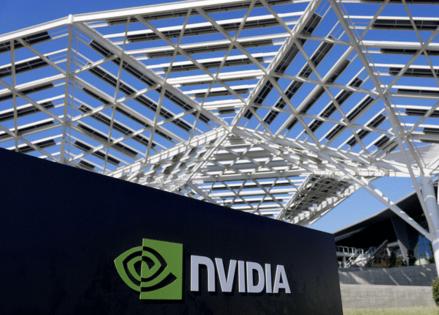Commentary: Revive America's innovation economy before it's too late
Published in Op Eds
For decades, the United States has been the world leader in innovation. Generations of business, political and educational leaders evolved a balanced system of public-private partnerships, deep science funding and support for small and emerging businesses. All Americans had a hand in creating a culture that celebrates a unique level of risk-taking and free inquiry.
This system mostly functions unnoticed, but we all benefit from it. Innovation and entrepreneurship are critical to the U.S. economy. These twin engines create jobs and raise our standard of living. Innovative companies founded in the last 50 years accounted for nearly half the value of the U.S. public markets. There are approximately 4.1 million startups in the U.S., which create around 3 million jobs annually. Without them, job growth in America wouldn’t exist, as they account for more than 100% of the growth in the number of jobs nationally (larger firms are actually shedding workers).
The foundation of this system has been federal research, which invests in research science long before entrepreneurs and investors see marketable value in any particular line of inquiry. When it comes to innovation, our past success has been built on partnerships between the government and the private sector. Companies such as Intel, Tesla, IBM, SpaceX, Google and Microsoft have benefited from early government contracts, research funding or loans. From Silicon Valley’s origins in Cold War-era defense contracts to the NIH-funded research that led to the mapping of the human genome, public investment has long driven America’s most transformative and valuable innovations.
Now, cuts to critical research funding, diminished support for education and attacks on free speech, which have existed on the left and right, are rapidly dismantling the foundations of American innovation. While scientists have been speaking up, the business community, one of the chief beneficiaries of federal research, has largely remained silent.
America has been falling behind in the new world order, in which China is our most formidable competitor. What is holding the United States back from competing effectively is a deeply politicized and overly simplistic approach in which good ideas are subject to unscientific litmus tests based on who is in charge. This mindset has moved from politics into the business world, with our system of innovation as one of the first casualties.
Those who hope the business sector can pick up the research agenda from the federal government are going to be disappointed. Whiplash from rapid policy changes is preventing American companies from even making short-term investment decisions. Many are hoarding their cash, waiting for some sense of direction or semblance of normalcy.
If the United States is to remain the global leader in innovation, policymakers must take decisive action. In the past, this agenda has had bipartisan support. We believe it can again.
Political leaders should:
Restore and expand research funding. Congress must commit to long-term increases in research to ensure that basic science continues to thrive. There is no private-sector mechanism that will support deep science at the scale necessary to achieve America’s long-term goals. Whether or not the United States does this, other countries already do. They see an opportunity to surpass the U.S. and are investing in deep research. They are even trying to lure our best scientists abroad with promises of greater research funding and flexibility, particularly targeting researchers in today’s most important technologies, such as AI, quantum computing and biotechnology.
Revamp small business funding. The Small Business Administration and business leaders — especially in the finance sector — must adapt to a changing economy by expanding access to capital for smaller businesses. Not all innovation comes from large technology companies. Small businesses in the U.S. comprise nearly half the economy (both in terms of GDP and employment). We can’t abandon this critical engine of growth.
Support innovation in historic manufacturing cities. Some of the Biden administration’s approaches to supporting innovation in historic manufacturing cities were well-founded and beginning to show success. There are numerous successful examples, including in Detroit, Pittsburgh and Cincinnati, where communities have been revitalized by repurposing legacy infrastructure to serve the automotive, energy and other industries. Abandoning these projects, especially over politics, is poor economic policy. Business leaders should also look to capitalize on the American talent in historic manufacturing centers.
Defend free inquiry. Universities and research institutions must be shielded from political interference to maintain a thriving intellectual environment. Innovations that eventually reach the market, gain value and create jobs are almost always born out of commercializing university research. Universities are one of the best systems for giving “crazy” ideas the space to take root and find support. Not all innovations are born out of what most people think of as science, either. Other countries are investing in the kinds of innovation that come from the visual, written and performing arts. Many Republicans criticized language and thought police, but capricious budget cuts, accompanied by fear and self-censorship, are even worse.
We cannot take for granted that America’s innovation economy will continue to thrive — especially as we start to starve it of fuel. We must act quickly, together, before we lose the competitive edge that has made America the most innovative and dynamic economy in the world.
____
Ro Khanna represents California’s 17th Congressional District. Seth Levine, a co-founder and partner of the venture capital firm Foundry, and Elizabeth MacBride, a business writer and consultant, are co-authors of the forthcoming “ Capital Evolution: The New American Economy.”
____
©2025 Los Angeles Times. Visit at latimes.com. Distributed by Tribune Content Agency, LLC.
























































Comments